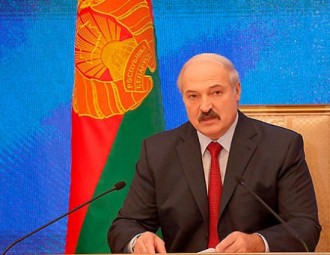Point of view: Lukashenka isn’t offering any steps to develop economy, domestic and foreign policy

However, he still aspires to preserve the current state of affairs thanks to the achievements in the past.
On August 6th, Lukashenka gave an interview to representatives of three independent media organisations – the largest business information web portal TUT.by and two radio projects - Radio Liberty and European Radio for Belarus. The interview’s main message was that Belarusian policy would not change regardless of the circumstances.
Lukashenka’s interview with the independent media organisations was multifaceted and detailed. Nominally, the interview could be divided into four main blocks: threats to the Belarusian independence, foreign policy, domestic policy, and made-up stories. As for the latter, Lukashenka for some reason told stories about how he prevented Polessie separatism, how Saddam Hussein gave money to build the national library, and how he won the first elections in 1994 in the first round. Lukashenka tells similar made-up stories every time he talks to the media, therefore this time analysts have not even paid attention to the ‘presidential folklore’.
President Lukashenka once again explained that he saw no threat to the Belarusian independence from Russia, but would be capable of defending Belarus’ sovereignty against any encroachment. According to him, two peaceful military bases do not pose any threat. Finally, the president firmly promised that Belarus would not invade Ukraine.
As for domestic policy, he would allow only one change – softer attitude towards the Belarusian language and Belarusian culture. There would be no changes in his attitude towards political opposition. Lukashenka, however, said that he pondered about releasing Mikola Statkevich before the elections, but had not yet decided whether to release him.
In addition, Lukashenka confirmed the firmness of his approach to economic policy, which included state dirigisme, comprehensive control over economic agents, subsidized consumption and production, president’s personal interference with criminal prosecution on economic charges, and waiting for better times on foreign markets.
Overall, Lukashenka is not offering any steps to develop Belarusian economy and domestic and foreign policy, yet he aspires to preserve the current state of affairs thanks to the achievements in the past.
-
03.01
-
07.10
-
22.09
-
17.08
-
12.08
-
30.09








































